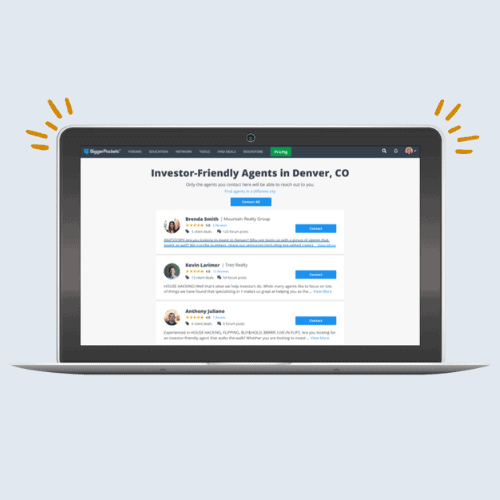When it comes to maximizing profit on your investment property, you’ve likely considered quite a few rental strategies. If long-term doesn’t pencil out, you could always consider revenue from medium-term or short-term tenants if your market supports it. But there is another successful, profitable rental strategy you should add to your arsenal: renting your property “by the room.”
Also referred to as a boarding or rooming house strategy, renting by room is not a new concept. But these kinds of arrangements are not as common as they were at the turn of the 20th century. Renting by room fills an important market gap, though, creating opportunities for renters who may not be able to afford an entire apartment on their own in a time of extreme housing shortages. In aggregate, you also stand to make a ton more money than if you just housed a single tenant.
If you think rent by room could work for you, here are some things to keep in mind.
Start-up Costs Are Minimal
In the rent-by-room model, since your tenants will be renting a private bedroom each and sharing common spaces like living rooms and kitchens, you’ll want to make sure each bedroom has a lock on it for privacy and tenant security, and ideally, its own thermostat. Usually, in these scenarios, bedrooms also come furnished. If you have a bedroom with an en suite, you can charge a little more per month, but it’s not a required feature since tenants can share bathrooms.
Where to List
Airbnb currently allows you to list your room rental (and offers protection through Air Cover), but this platform will likely attract more short-term tenants. There are also newcomers to the rent-by-room market, like PadSplit, that take care of all the management of a rent-by-room, including things like background and income checks as well as evictions.
How the Numbers Break Down
Say you have a typical four-bedroom, three-bathroom single-family home. In this hypothetical situation, if you were to rent the full house to one tenant, you would gross $2,000 a month. Instead, if you rent the same home by room to four different people, you could make $1,000 a month from each tenant, increasing your gross revenue to $4,000. PadSplit estimates that owners can make up to 2.5x more renting by the room than they make with a single tenant.
Final Thoughts
The average length of stay is shorter with room-by-room rentals, averaging eight months versus a full year. But that’s still a lot less turnover/management than with a typical STR model. Instead of one lease, you’ll need as many leases as you have bedrooms and tenants, so there is more management if you choose to self-manage, and of course, roommate issues are no fun to referee. In some states, you may also need a special license from the state to run a boarding house.
Join the community
Ready to succeed in real estate investing? Create a free BiggerPockets account to learn about investment strategies; ask questions and get answers from our community of +2 million members; connect with investor-friendly agents; and so much more.
Note By BiggerPockets: These are opinions written by the author and do not necessarily represent the opinions of BiggerPockets.

